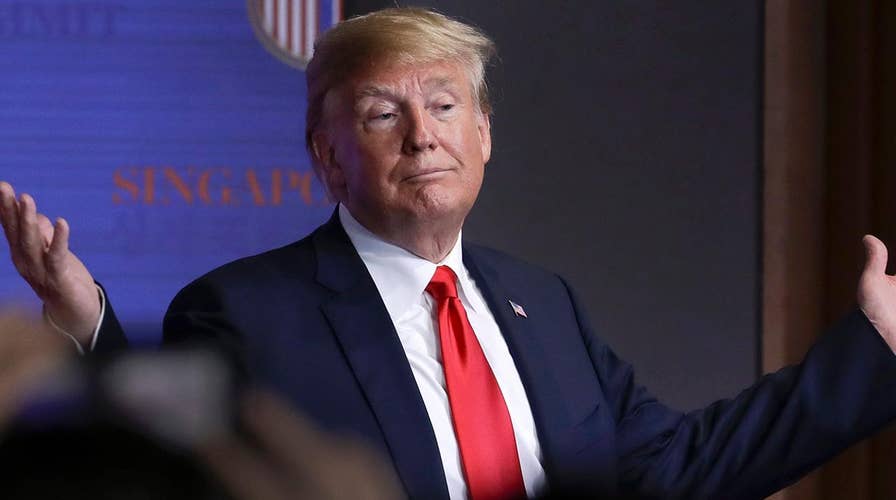Trump celebrates historic summit with NoKo's Kim Jong Un
Critics warn President Trump that he shouldn't trust a brutal regime that has broken agreements in the past, such as North Korea; chief White House correspondent John Roberts reports from Singapore.
In Singapore this week, Russia and China were not included in President Trump’s summit with North Korean leader Kim Jong Un, but they were surely mounting their own full-court espionage press.
Chinese President Xi Jinping and Russian President Vladimir Putin were undoubtedly directing their intelligence services to collect as much information as possible on the talks between the U.S. and North Korea, including the key participants and their teams.
Below the surface, not visible to casual visitors and officials, Singapore was likely crawling with Russian and Chinese spies. Russia and China likely deployed sophisticated human and electronic intelligence – from bugging hotel rooms to seeking contact with U.S. and North Korean officials – with an eye towards eliciting intelligence.
Both China and Russia have highly developed offensive cyber capabilities, which would enable them to hack into mobile phones, computers and other technical devices.
China and Russia will continue their espionage as future U.S. negotiations with North Korea and possible follow-on summits take place.
Secretary of State Mike Pompeo, who said he hoped President Trump’s historic meeting with Kim would “set the conditions for future productive talks,” was essentially shooting the starting gun in a Chinese and Russian race to collect sensitive information on this challenging and critically important U.S. diplomatic initiative.
Russian intelligence has historically conducted blackmail – known as kompromat or “compromising material” in Russian – to coerce targets into submission.
Russian intelligence officers lure unsuspecting targets into compromising themselves, then document or record the act to blackmail targets at a later date. Russia equips hotels with surveillance equipment designed to catch the unsuspecting target in a compromising situation such as sexual acts, corruption, drug abuse, etc.
For the U.S. intelligence community, this puts counterintelligence – the art of spying on those who are conducting espionage against us – at a premium. The goal is to provide indications and warnings to the U.S. government officials at greatest risk of being subjected to nefarious enemy spying.
The U.S. intelligence community will also be charged with intelligence collection to support our diplomats making preparations to begin follow-on negotiations with their North Korean counterparts.
North Korea is arguably the most isolated country on the planet, with a long history of double-dealing. The summit’s face-to-face meetings were an exceptionally valuable opportunity to build rapport and conduct some firsthand assessments of Kim and his leadership team.
But President Trump will rely on intelligence to collect reflections of Kim’s assessment of the summit, as well as his follow-on plans and intentions.
For intelligence professionals, President Trump’s summit with Kim was a seminal event that would induce reactions not only in Pyongyang but in Moscow and Beijing as well.
Secretary Pompeo’s diplomatic efforts to achieve a peaceful and denuclearized Korean peninsula will continue to rely on successful intelligence collection both to steal our enemies’ secrets as well as protect our own.





















